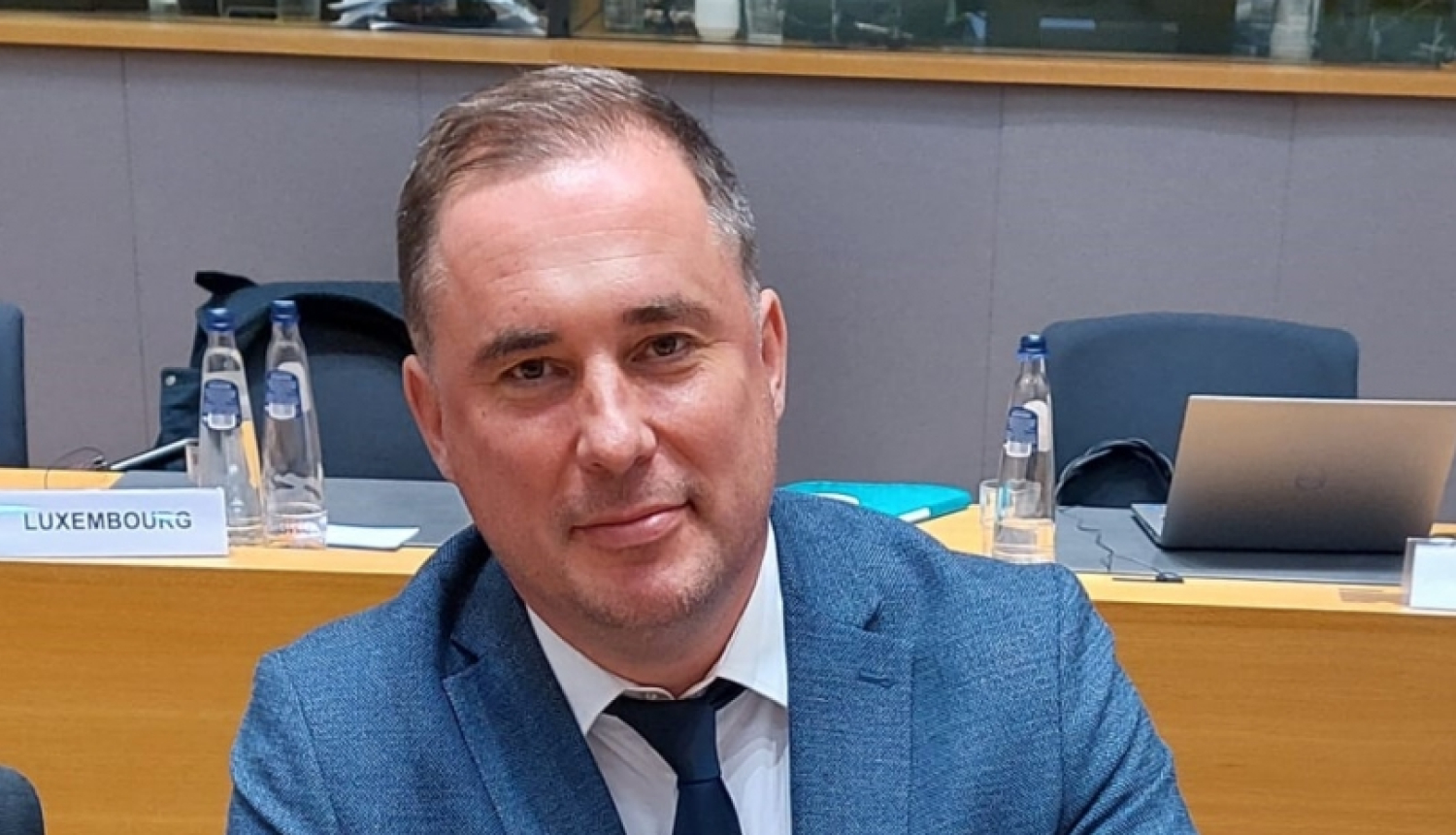On Tuesday, July 25, the Minister for Agriculture Didzis Šmits attended the meeting of the EU Council of Ministers for Agriculture and Fisheries in Brussels (Belgium), where he continued to discuss the situation on the EU agri-food market. The impact of Russia's invasion of Ukraine on the agricultural product market has been exacerbated by the devastating drought and heat in parts of European Union (EU) countries. Urgent aid granted by the European Commission (EC) to farmers, of which EUR 6.8 million has been allocated to farmers in Latvia, in difficult negotiations with EU, helps to maintain stable food production – in urgent circumstances where improving of the situation is outside the control of farmers themselves.
“It's very topical to talk about forecasting the market situation and to be well prepared. Especially seeing that Russia uses food, especially grain, as a weapon and destabilizes the market. Latvia is one of the first Member States of the European Union to start reporting data on its agricultural and food stocks. At the moment, this is very important information that we all need to provide,” the Minister for Agriculture, Didzis Šmits recalled at the Council meeting. “We therefore expect the European Commission to present an analysis of the information, received on production stocks and developments in the internal market of the European Union.”
The Minister also mentioned that not only monitoring of the most important stocks of agricultural products is important, but the EU must also be able to anticipate the development of the situation on the market. The Minister therefore stressed during the discussion that an EU-level preparedness mechanism for crisis situations should be established, which would provide both transparency in decision-making and justify the granting of potential aid in the event of a crisis.
The prolonged and extreme drought that ruled Latvia from April to June 2023 has had irreversible and serious consequences in the sector of agriculture. The expected decrease in crop yields will have a negative impact on farm incomes, while the low yield of fodder plants significantly increases the cost of preparing fodder. In orchards, most of this year's upcoming crop has frozen in spring's devastating frost. A survey of the gardens is currently underway to clarify the extent of the losses. The crop forecast for cereals, rapeseed, fruit and berries has deteriorated very much, with farms facing profitability problems. Estimates carried out show that in 2023 the value of agricultural output could decrease by approximately 30 per cent, so apart EC emergency support, the possibility to apply certain derogations in the Latvian Common Agricultural Policy is also necessary, according to Didzis Šmits.
Ministers in Brussels expressed strong condemnation of Russia's move to withdraw from the Black Sea grain deal and concerns about the impact it will have on the already strained situation in the agricultural market and global food security. Ministers stressed the need to improve the operational efficiency of the Solidarity corridors and to find alternative transit routes to continue to secure exports of Ukrainian agricultural products.
Didzis Šmits reaffirmed Latvia's strong support for Ukraine. Latvia believes that when addressing the problems of Ukrainian border countries, facing a significant influx of Ukrainian agricultural products, it is not necessary to adopt bans, but to seek and find common solutions for exporting and facilitating transit of Ukrainian agricultural products.
However, Latvia cannot support the proposal of the new EC Regulation on the sustainable use of plant Protection products (PPP), which has been prepared by the EC, as it requires a virtually complete ban on the use from Latvia, being as the smallest user of PPP. In its additional study, the Commission has not answered the most important questions: how the obligation imposed on Member States to reduce the use of PPP will affect production, food prices and competitiveness. The inability to answer these important questions, even with an additional study, leads Member States to continue to debate whether the proposal for a regulation would be feasible in life.



